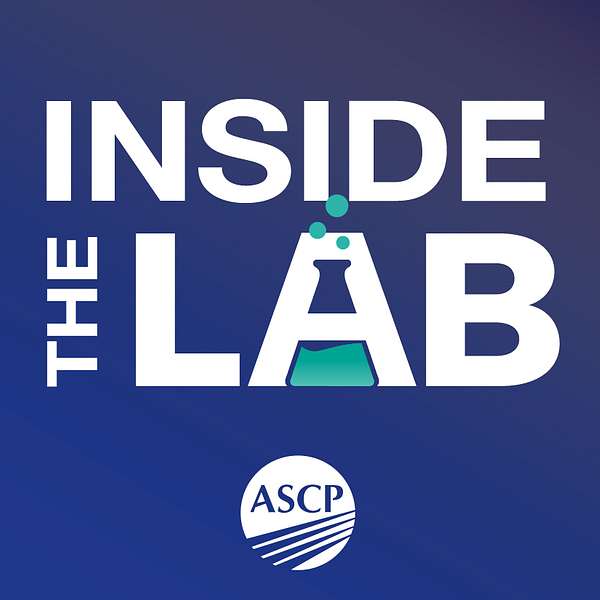
Inside the Lab
Inside the Lab
S3Ep7: Everything You Need to Know About RISE
ASCP’s Resident In-Service Exam, better known as RISE, began in 1983, and it was designed as a study tool for board exams.
But RISE has evolved over time in response to feedback from program directors and residents alike, adapting to remain relevant to practice and help students identify their individual strengths and weaknesses.
So, what do you need to know about the Resident In-Service Exam and how it can ensure your success as an emerging pathologist or laboratory professional?
On this episode of Inside the Lab, your hosts Dr. Ali Brown, MD, FASCP, and Ms. Kelly Swails, MT(ASCP), are joined by Mr. Jay Wagner, MBA, MLS(ASCP), Director of Assessment, Measurement, Evaluation, Examinations and Outcomes at ASCP, and Dr. Jonathan Genzen, MD, PhD, Associate Professor at the University of Utah, CMO at ARUP Laboratories and Chair of the RISE Committee, to discuss the evolution of ASCP’s Resident In-Service Exam.
Mr. Wagner and Dr. Genzen discuss who is responsible for writing questions for RISE, what that process looks like, and why the committee doesn’t repeat questions from year-to-year. The panelists explain how RISE supports you in learning from the questions you miss and why there’s such a significant correlation between RISE scores and ABPath pass rates. Listen in for insight on how to study for RISE and learn how the exam helps gauge residents’ progress in becoming the next generation of pathologists and laboratory professionals!
Topics Covered
· How ASCP’s Resident In-Service Exam has evolved since its inception
· Who is responsible for writing the questions for RISE and what the process looks like
· How the RISE Committee makes the exam relevant for international participants
· The correlation between Resident In-Service Exam scores and ABPath pass rates
· How RISE is scored and how it helps you learn from the questions you miss
· When RISE is given and how you can take it all four years of your residency
· How the online format gives program directors flexibility in the administration of RISE
· RISE’s purpose in gauging resident progress and identifying strengths and weaknesses
· Using the Resident Question Bank to study for RISE
Connect with ASCP
ASCP
ASCP on Facebook
ASCP on Instagram
ASCP on Twitter
Connect with Mr. Wagner
Mr. Wagner on LinkedIn
Connect with Dr. Genzen
Dr. Genzen at the University of Utah
Dr. Genzen on LinkedIn
Connect with Ms. Swails & Dr. Brown
Ms. Swails on Twitter
Dr. Brown on Twitter
Resources
ASCP Resident In-Service Exam
ASCP Resident Question Bank [Promo Code POD50]
Inside the Lab in the ASCP Store